Customize modules
DEUNA offers a series of modules that you can incorporate to optimize the shopping experience.
Each module solves a specific need within the checkout flow and can be activated or deactivated according to your business requirements.
DEUNA offers flexible and dynamic control over each module.
Each module includes different functionalities. Decide which modules to use for your widget and customize them.
Request your TPM to enable or disable each module within your payment solution.
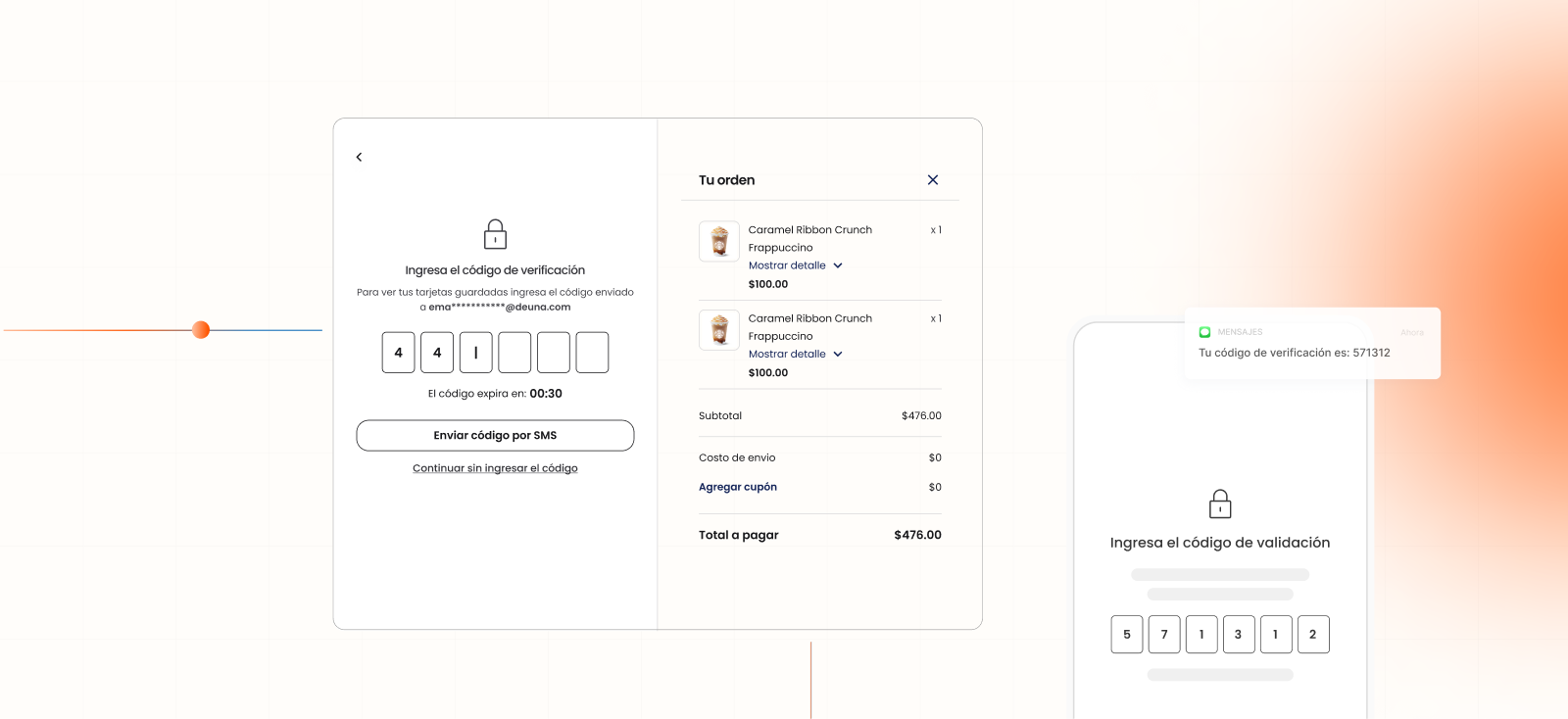
Login module
The login module is used to recognize your shoppers after their first purchase.
With registration, you can give your customers a faster shopping experience thanks to verification through OTP (one-time password).
Once the user verifies, they don't have to add their data again, as it's saved for future purchases.
The login module is available only for the payment link and complete checkout products.
Submodule | Description |
|---|---|
Login Pattern | Classic authentication experience that allows users to log in by manually entering their email. |
LoginWithOrderEmail Pattern | Authentication experience based on the email included in the tokenized order, with access to stored cards. |
Use the DEUNA network to leverage not only your users but millions of users who have purchased through our widgets.
One-time password module
Allows authenticating shoppers by sending an OTP (one-time password) code to their email or phone. This allows for the retrieval of information from previous purchases and reduces friction in the payment process.
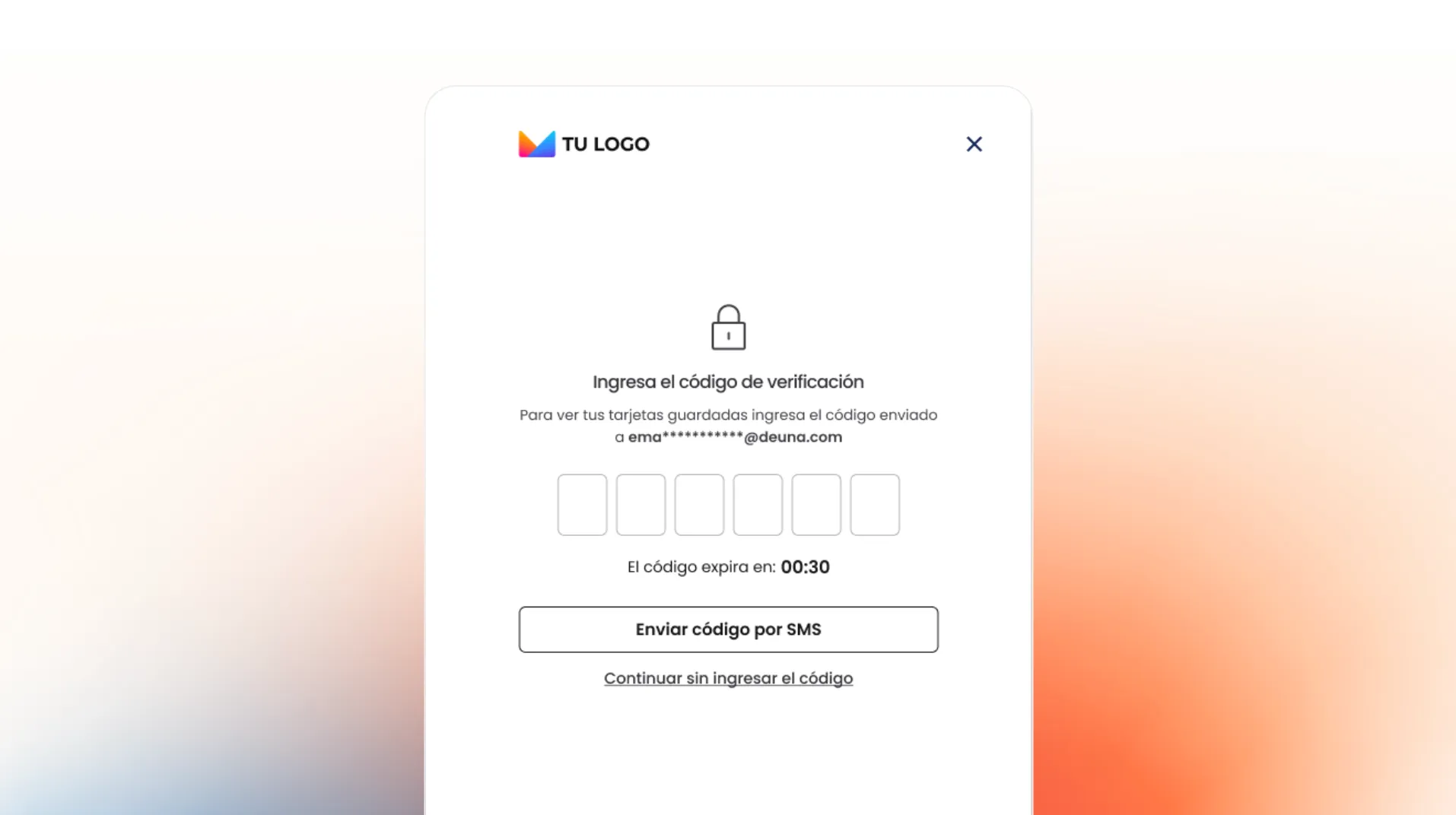
Address module
Facilitates the collection of shipping addresses through manual entry or geolocation.
Available only for the complete checkout product.
On a second purchase, users won't have to re-enter their address.
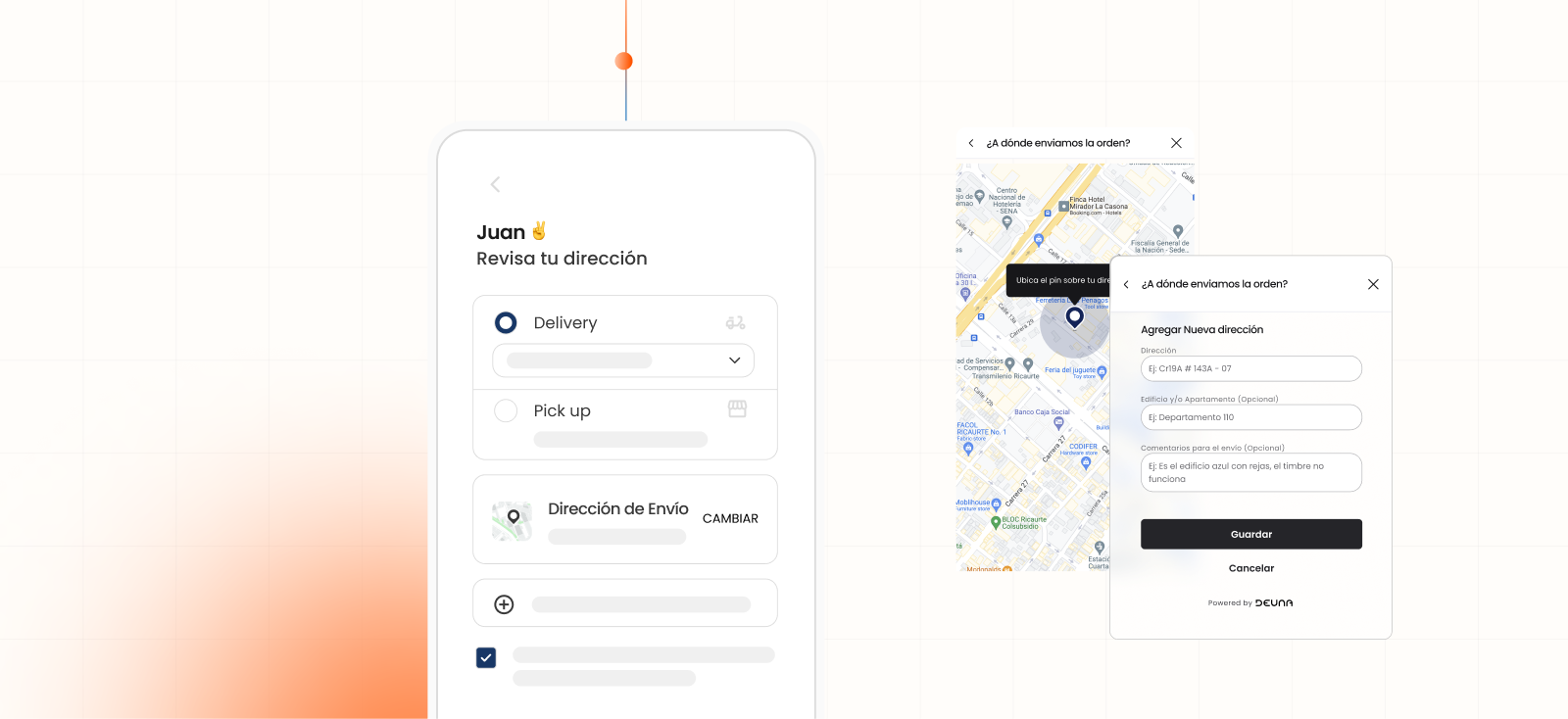
| Submodule | Description |
|---|---|
| AddressMapWithSummary Pattern | Allows users to add their current address or manual entry, leveraging map functionality. |
Personal data module
Collects the buyer's personal information required to process the order.
Available only for the payment link and complete checkout products.
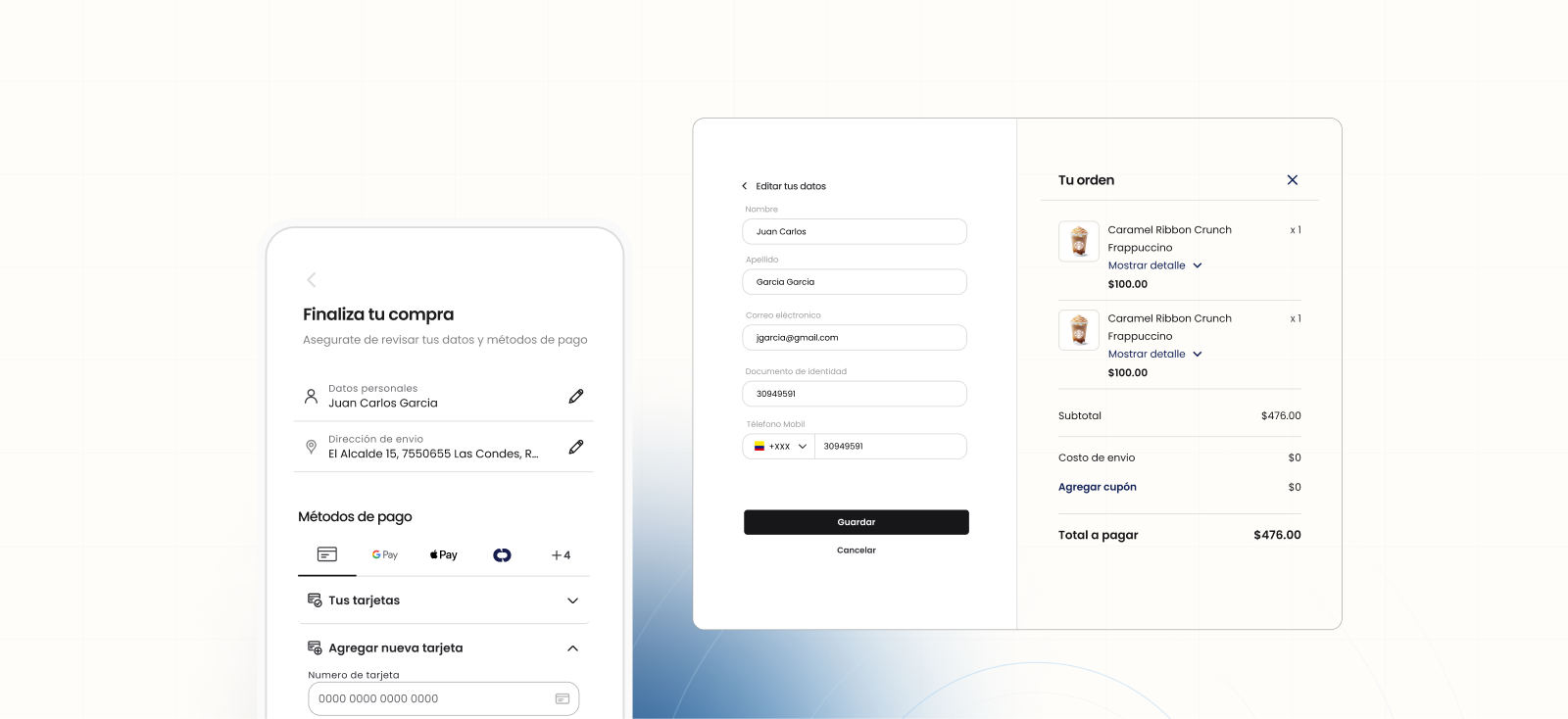
The personal data module obtains your customers' personal data and increases transactions.
| Submodule | Description |
|---|---|
| UserInfo Pattern | Classic personal data form with customizable rules. |
| UserInfoSummary Pattern | Summary of the form in UserInfoPattern. |
Billing address module
Allows showing or hiding billing fields according to business needs. It can be presented on the main checkout screen or as a secondary view.
In the code, this configuration is controlled through the BillingPattern property.
Available views
You can present the billing module in two different ways:
- Main view
- Independent view
Main view
Shows a maximum of four fields if you decide to include billing directly on the same main checkout screen, so as not to affect the user experience.
- If the order already contains pre-loaded billing information, then a summary is displayed instead of editable fields.
- If no data is available, then the defined fields are requested before continuing with the payment process.
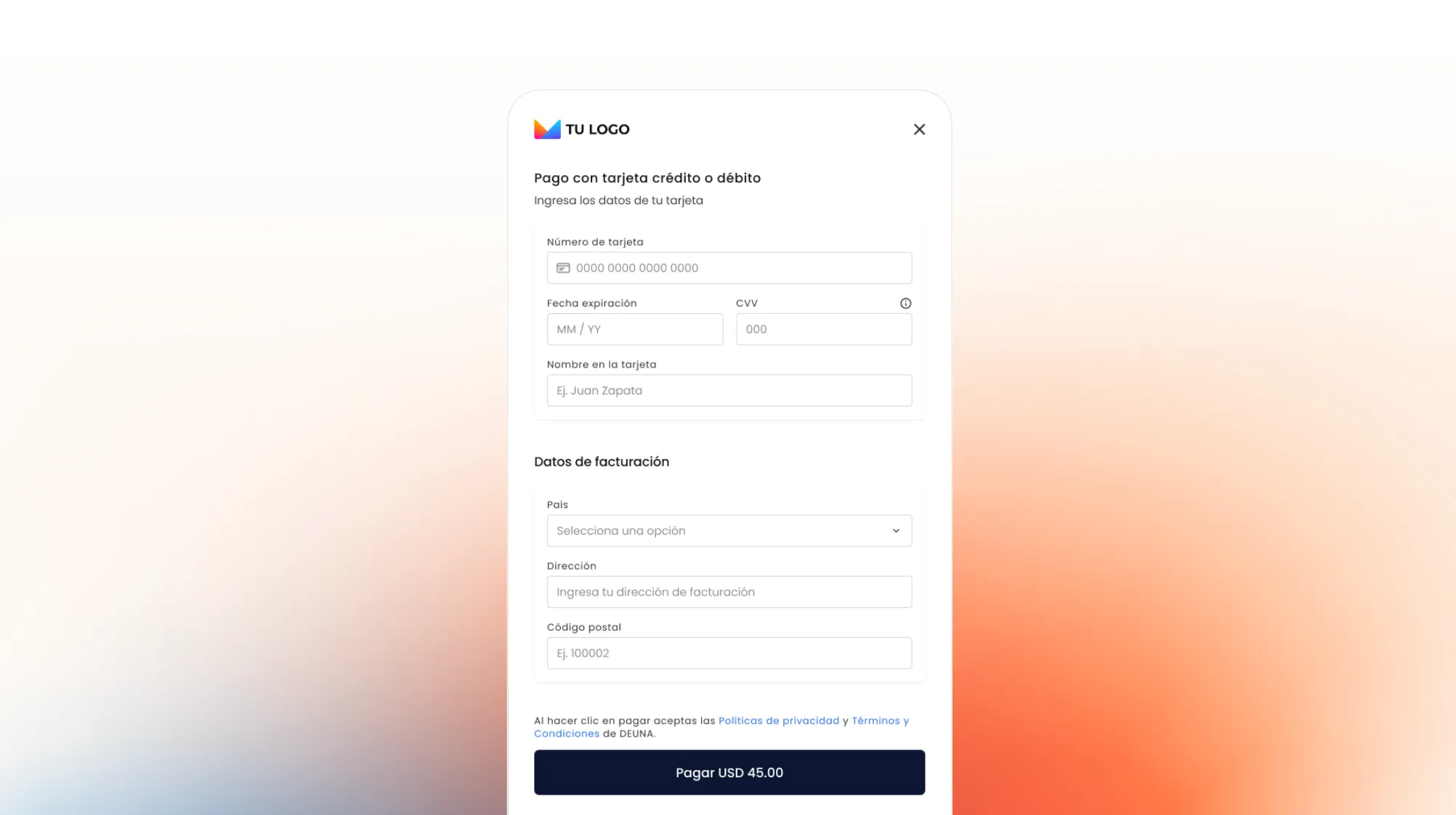
Independent view
The user accesses this view through a button. For example, "Add billing information".
If they click Pay without completing the required information, then the system shows an inline error message in the billing component.
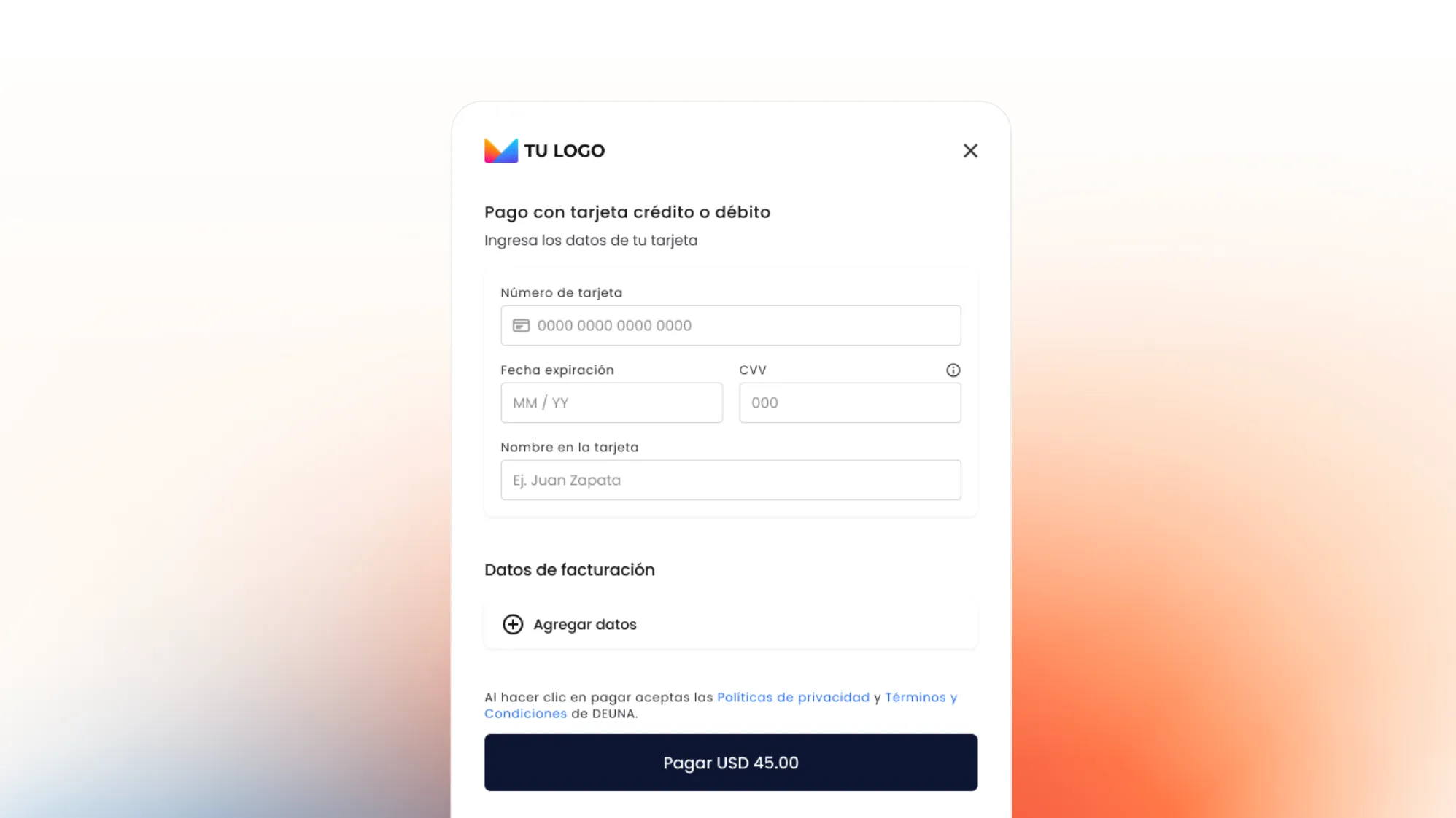
Field customization
Choose which billing fields to show and in what order.
This allows adapting the form to the regulatory or user experience needs of each country or vertical.
These are the available fields in default order:
- First name
- Last name
- Country
- State / Department / Municipality
- City
- Address
- Postal code
- Phone number
- Identity document number
Field and text variations by country
Customize field names and behavior so the experience remains clear and familiar to your users.
The following table shows how some fields change according to country:
| Field | United States (US) | Mexico (MX) | Costa Rica (CR) | Guatemala (GT) | El Salvador (SV) | Colombia (CO) | Ecuador (EC) |
|---|---|---|---|---|---|---|---|
| First name | First name | Nombre | Nombre | Nombre | Nombre | Nombre | Nombre |
| Last name | Last name | Apellido | Apellido | Apellido | Apellido | Apellido | Apellido |
| Address | Street address | Dirección | Dirección | Dirección | Dirección | Dirección | Dirección |
| Country | Country | País | País | País | País | País | País |
| State | State | Estado | Provincia | Departamento | Departamento | Departamento | Provincia |
| City | City | Ciudad/Municipio | Cantón/Distrito | Municipio | Municipio | Ciudad/Municipio | Ciudad |
| Zip Code | ZIP code | Código Postal (CP) | N/A | N/A | N/A* | Código Postal | Código Postal |
| Correo electrónico | Correo electrónico | Correo electrónico | Correo electrónico | Correo electrónico | Correo electrónico | ||
| Phone number | Phone number | Teléfono | Teléfono | Teléfono | Teléfono | Teléfono/Celular | Teléfono/Celular |
Request field customization from your TPM.
Payment methods module
This module is DEUNA's main component and constitutes the core of all DEUNA products.
Its function is to orchestrate payment logic, anti-fraud integrations, and acceptance configurations in a centralized and efficient manner.
This module enables Connections to payment methods with a single integration.
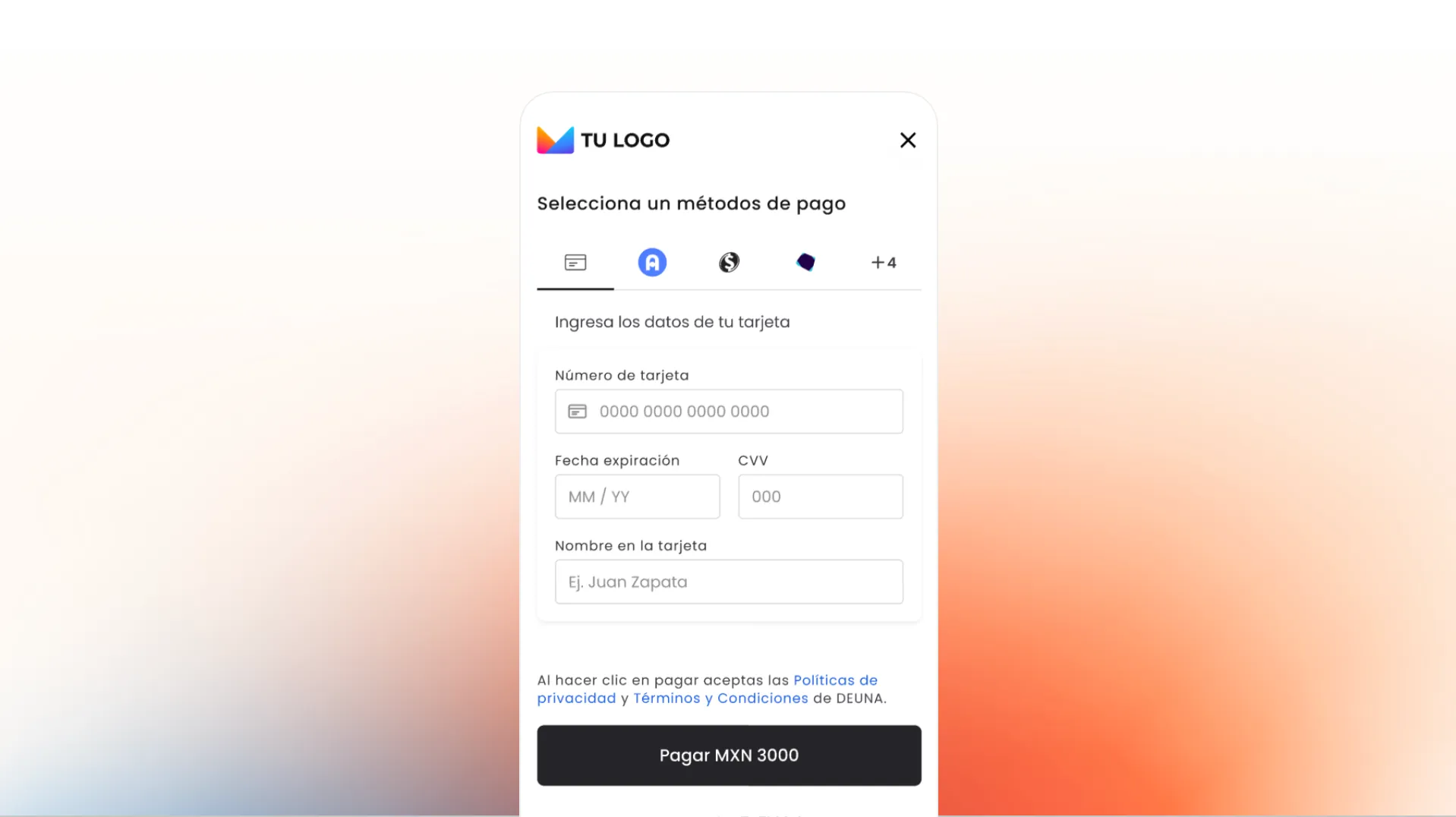
Identity document request
Enable the collection of the payer's identity document during card data entry. This is useful in countries where local regulations require it or when seeking to implement additional security and fraud prevention controls.
Card save checkbox
For users shopping as guests, you can add a checkbox for them to decide if they want to save their card. By default, this option is not shown and cards are saved automatically, which improves conversion on future purchases.
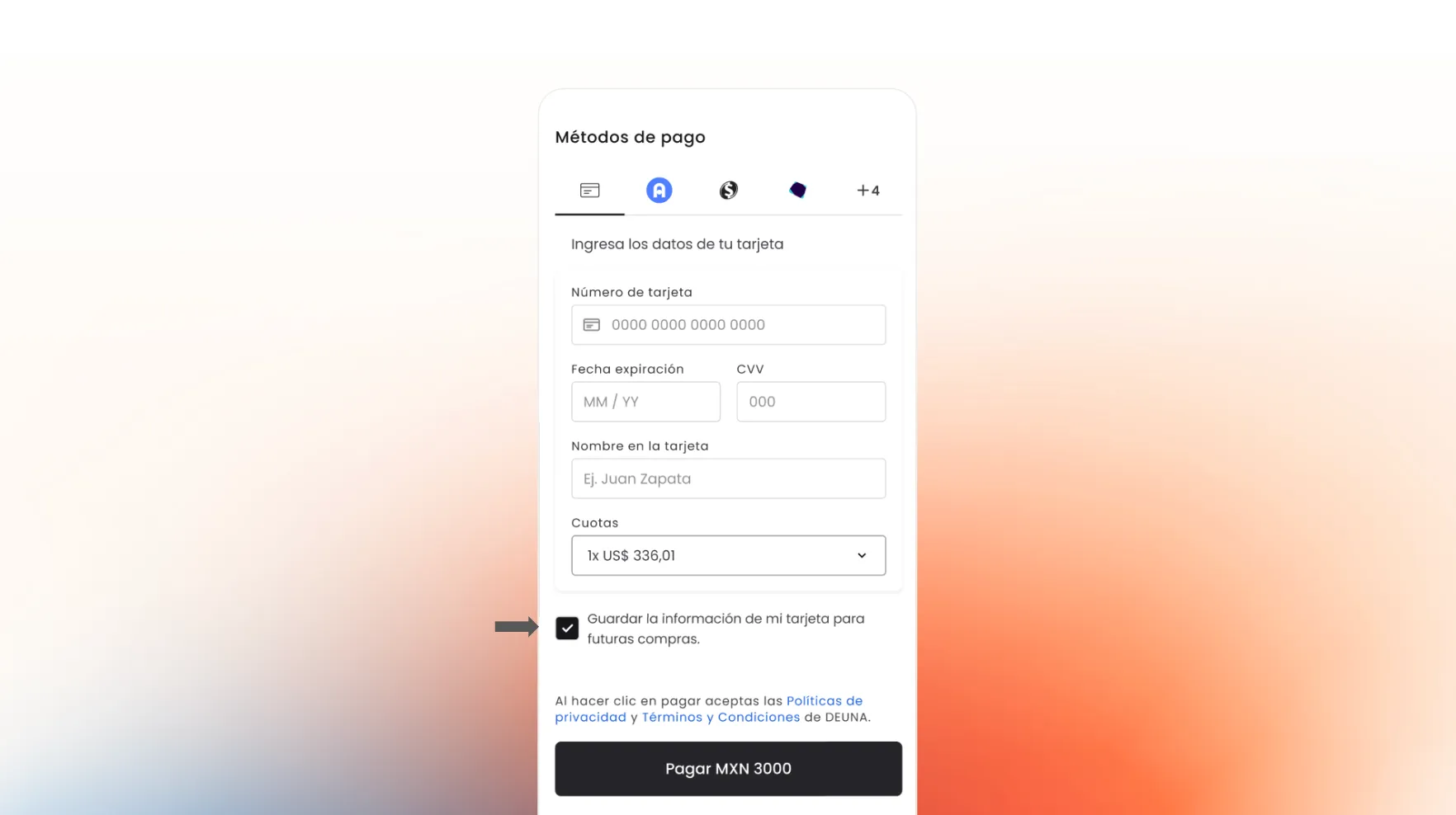
Default card checkbox
You can enable an additional checkbox for the user to define if they want to mark the card as default for future purchases.
This option is not visible by default, but it can be activated according to your needs.
Pay button
Allows placing the pay button outside the widget, offering greater flexibility in checkout design.
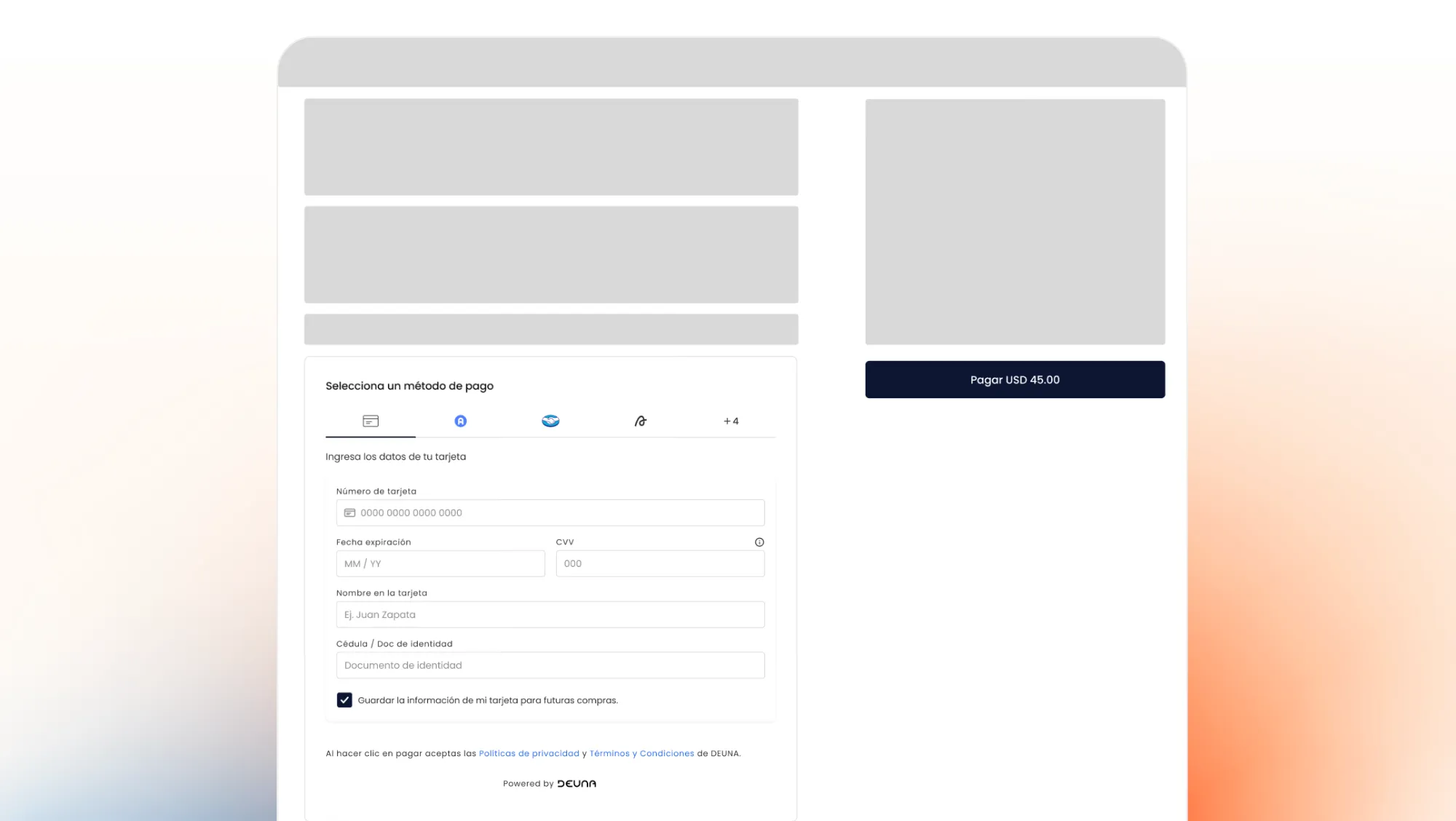
Order details module
Show or hide the shopping cart within the checkout.
The cart includes a side summary with the details of added products, payment breakdown, and total to pay.
It provides transparency to the process and improves the shopping experience, allowing users to review their order before paying.
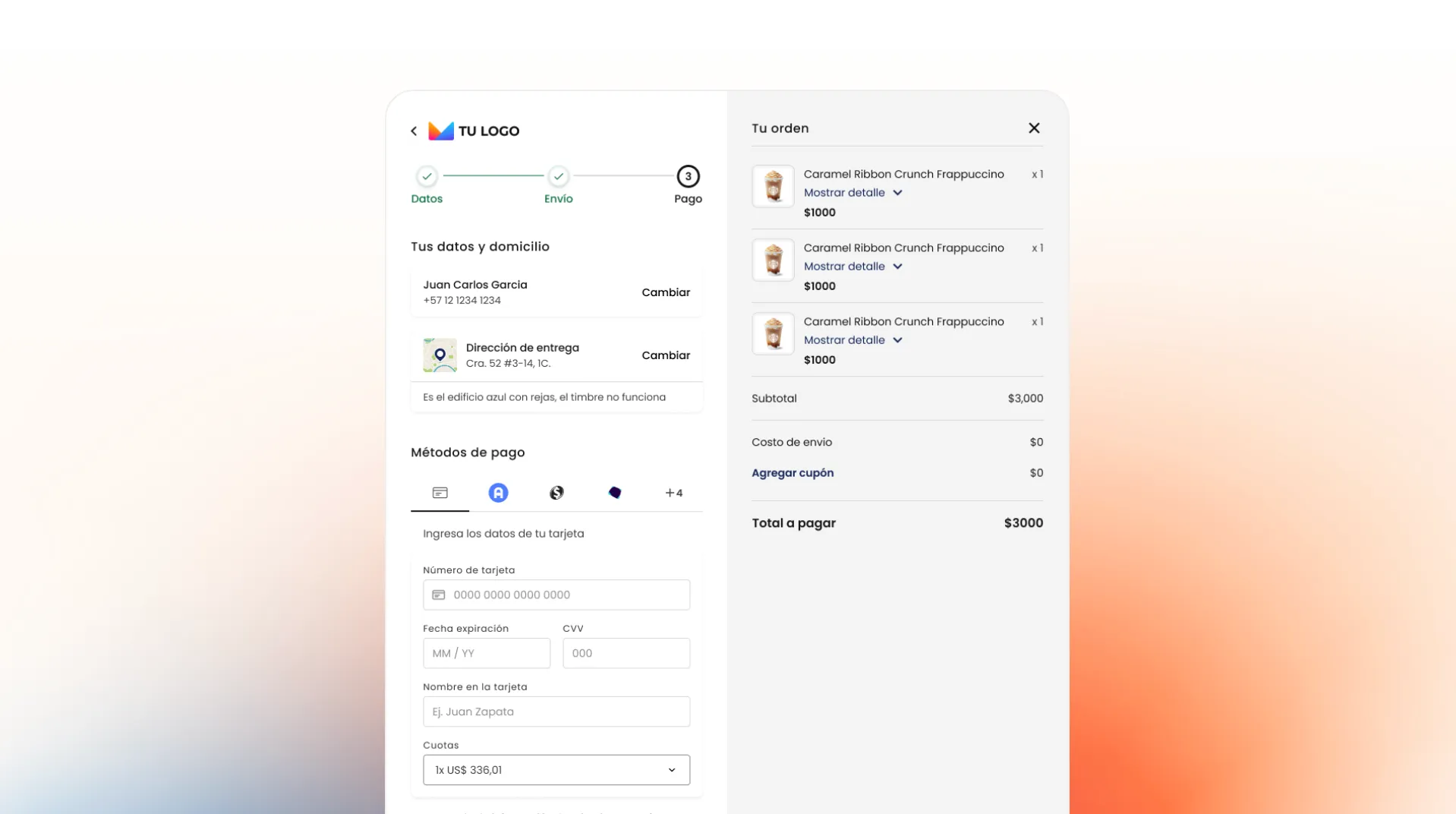
Define whether or not to show order details, as well as adjust the following elements:
- Show/hide:
- Subtotal
- Taxes
- Shipping costs
- Product details
- Product images:
- No image
- Default image
- Small image
- Large image
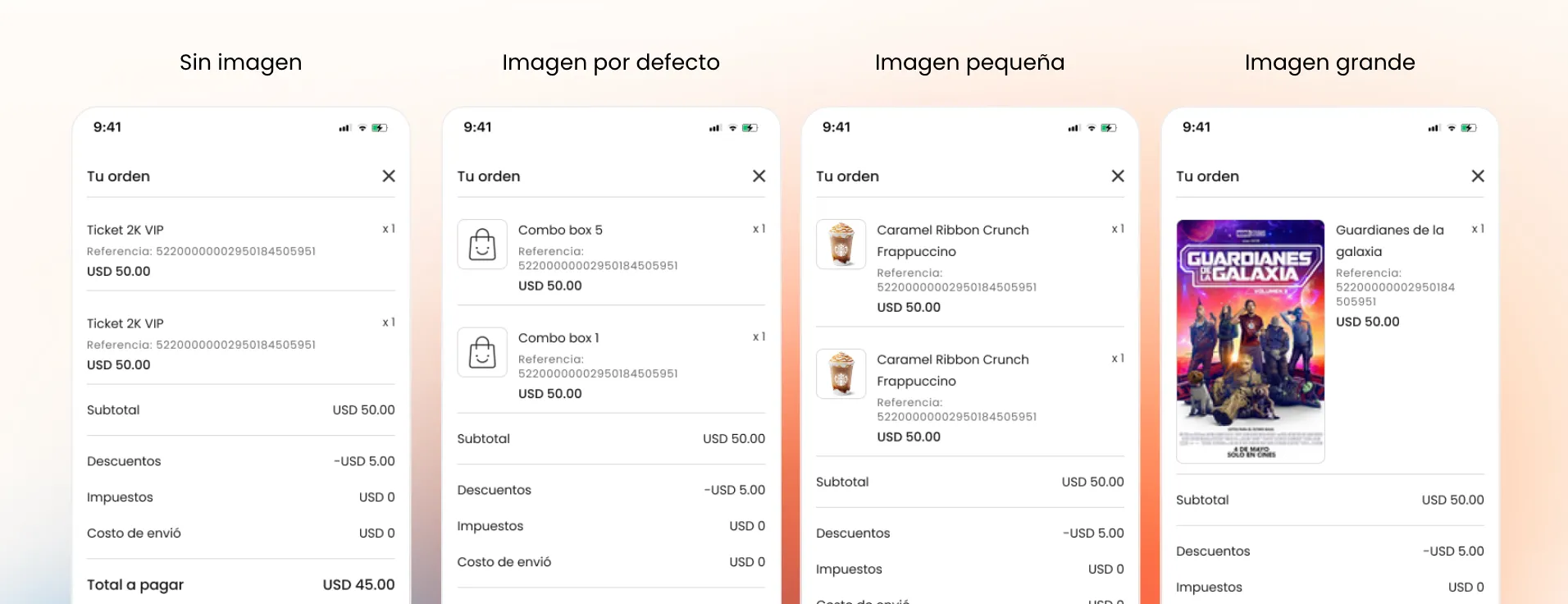
Thank you page
Final screen of a payment flow. Shows confirmation information as:
- Order number
- Purchase summary
- Post-purchase instructions
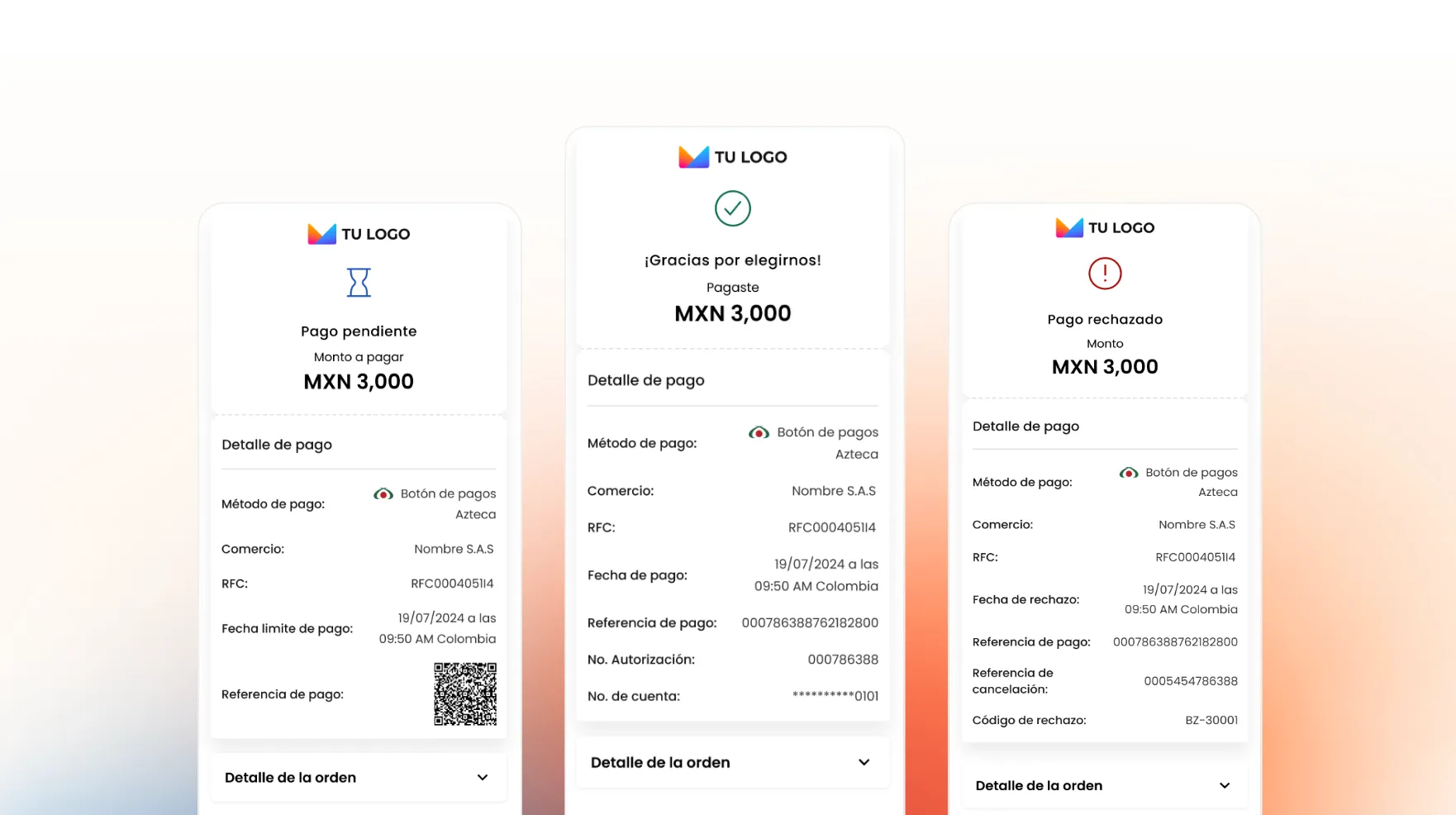
Other modules
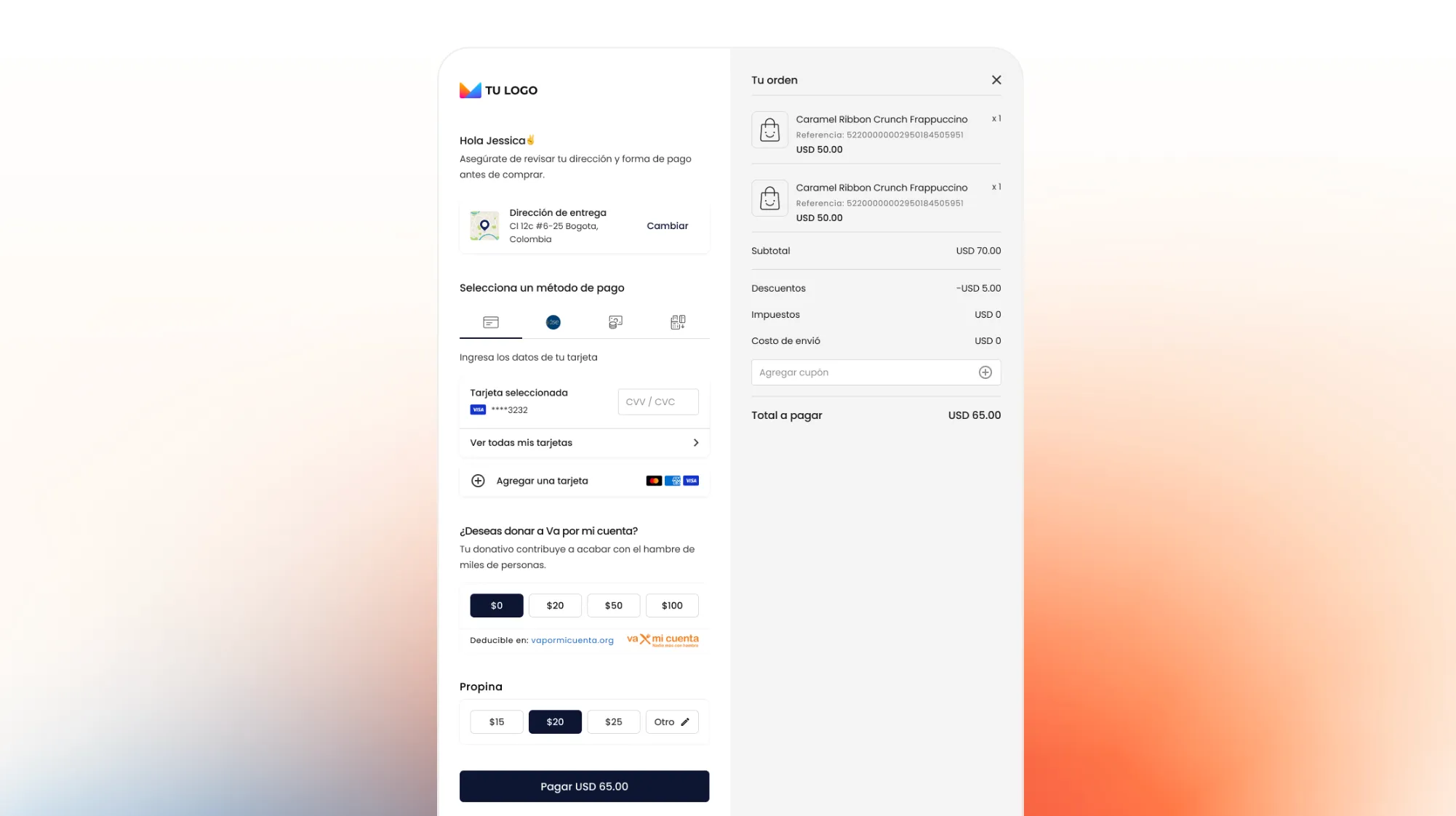
These modules complement the experience and are available only for the complete checkout product:
- Coupons: Allows applying promotional codes.
- Donations: Enables the donation option.
- Benefits: Shows applicable discounts or offers.
- Tips: Allows adding tips at the time of payment.
Updated 2 months ago
